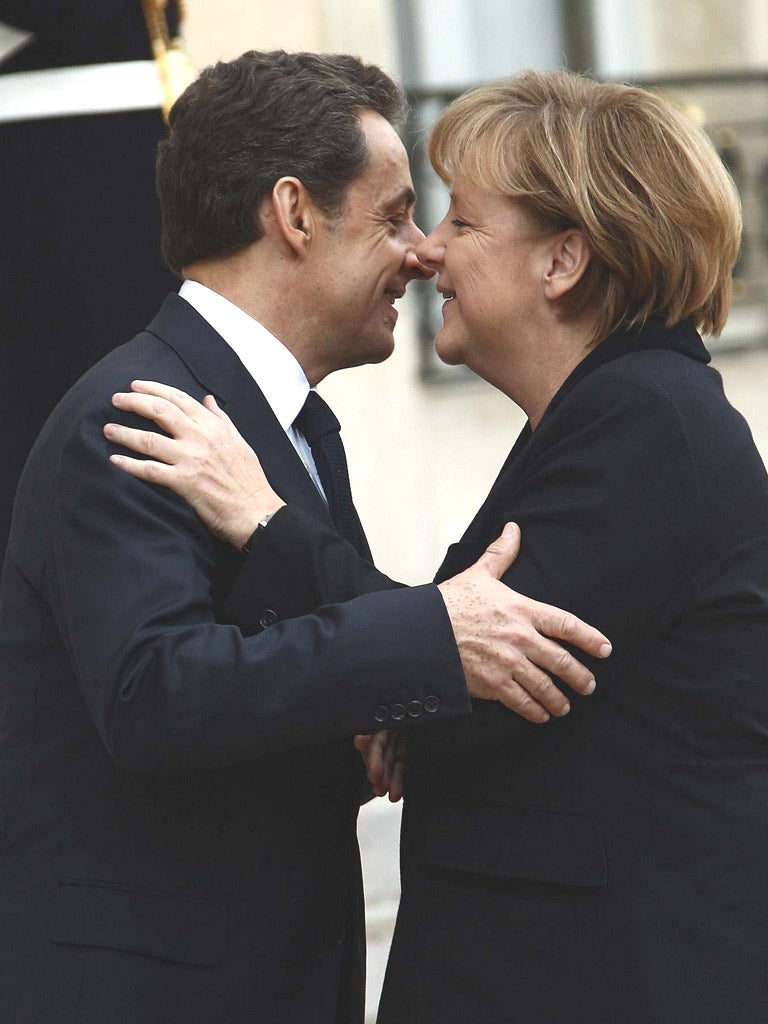Work harder, earn less: Sarkozy hopes tough talk will win votes

Your support helps us to tell the story
From reproductive rights to climate change to Big Tech, The Independent is on the ground when the story is developing. Whether it's investigating the financials of Elon Musk's pro-Trump PAC or producing our latest documentary, 'The A Word', which shines a light on the American women fighting for reproductive rights, we know how important it is to parse out the facts from the messaging.
At such a critical moment in US history, we need reporters on the ground. Your donation allows us to keep sending journalists to speak to both sides of the story.
The Independent is trusted by Americans across the entire political spectrum. And unlike many other quality news outlets, we choose not to lock Americans out of our reporting and analysis with paywalls. We believe quality journalism should be available to everyone, paid for by those who can afford it.
Your support makes all the difference.In an act of supreme courage– or electoral suicide – President Nicolas Sarkozy last night told France to work harder for lower pay and higher taxes.
Mr Sarkozy, insisting that he was speaking as President, not as candidate, announced a 1.6 per cent rise in VAT and changes in employment law to allow wage cuts and longer hours.
In TV interview broadcast on all the main channels, the President adopted what some of his supporters called the "courageous" or "Churchillian" defence against the increasingly powerful electoral challenge of the Socialist candidate, François Hollande. Other despairing centre-right politicians spoke of a "kamikaze" approach to a spring election which might already be slipping out of the President's grasp.
Mr Sarkozy said urgent and radical reforms were needed to allow France to compete in Europe and the world. Following the loss of its triple A credit rating and a surge in unemployment to nearly 10 per cent, emergency action was required to restore the competitiveness of France's economy.
He proposed a 1.6 per cent rise (to 21.2 per cent) from October in the basic rate of VAT. The €13bn raised would, he said, allow cuts in the heavy burden of payroll taxes paid by French employers. He proposed a change in labour law to allow companies and unions to negotiate wage cuts and exceptions to the 35 hour working week.
He announced plans to expand house building and impose tougher fines on companies who failed to hire apprentices. He said that France would push ahead, before the EU, with a "unilateral" 0.1 per cent tax on all transactions.
It was time to address the French people with "courage, honesty and clarity", Mr Sarkozy said. Urgent action was needed to reduce the burden of state spending on private enterprise or industrial jobs would continue to drain away to Germany or China. There seems little chance that Mr Sarkozy can push though such unpopular measures before the two round presidential election on 22 April and 6 May. Parliament dissolves at the end of next month and the upper house, Le Sénat, now has a centre-left majority.
Although Mr Sarkozy refused formally to confirm his candidature last night, his proposals amounted to a preview of a "blood, sweet and tears" electoral campaign. The President is said to believe that the best response to the popularity of the mildly leftist programme of Mr Hollande is a campaign based on "courage" and "honesty".
"What is the alternative?" he asked last night. "To fold our arms and do nothing and watch the jobs disappear?" Many of his own centre-right supporters fail to understand why such drastic action is needed after five years of modest reforms and zig-zag economic policies. "It's an act of political suicide," said Lionnel Luca, of the Union pour un Mouvement Populaire (UMP).
Some UMP politicians fear it proves Mr Sarkozy knows he cannot win. He wants, they fear, to go down with guns blazing, fighting for the radical reforms he has skirted for five years.
With friends like these: Merkel offers help
The spectre of a new candidate hovered over the presidential race yesterday – "Merkozy". A senior aide to the German Chancellor, Angela Merkel, said that she was planning to hold "joint campaign meetings" with President Sarkozy before the French election. Ms Merkel is admired in France but her outright intervention in the campaign could be counter-productive. Mr Sarkozy has been criticised domestically for giving too much ground to the Chancellor in their joint efforts – which generated the nickname "Merkozy" – to rescue the euro. Sarkozy's party, the UMP, played down the offer yesterday, suggesting that Ms Merkel might come to "one meeting" just before the first round.
Join our commenting forum
Join thought-provoking conversations, follow other Independent readers and see their replies
Comments